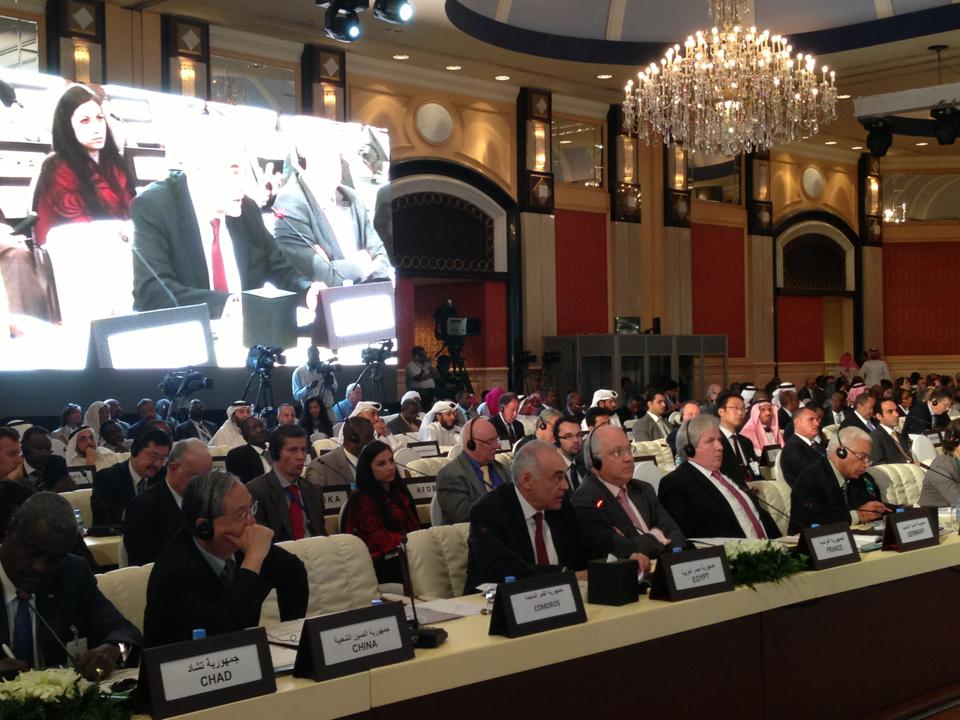By Heba Hesham
CAIRO: Analysts criticized Saturday’s joint session of the People’s Assembly and Shoura Council for failing to reach concrete decisions as political powers remain divided over selecting the members of the constituent assembly.
The joint session Saturday was meant to discuss criteria for selecting members of the constituent assembly, who will then draft Egypt’s new constitution.
Members of both houses of parliament debated whether the 100 members of the assembly would include MPs, and set a timetable that would see the assembly elected by March 24.
While some parties, including the Muslim Brotherhood’s Freedom and Justice Party (FJP) — who won a parliamentary majority — and the Salafi Al-Nour Party suggested that MPs should comprise a large portion of the constituent assembly, other liberal parties proposed that they should take the lowest share.
Other MPs, such as Mostafa El-Gendy from Al-Wafd Party, argued that the MPs should be left out of the assembly altogether.
“There is a conflict of interest when one of the state’s authorities [parliament] drafts the constitution which outlines the powers of the three authorities,” he said.
Meanwhile, Essam Sultan, MP of Al-Wasat Party, criticized these proposals saying that the number of MPs in the assembly is not as important as their efficiency.
“Don’t prejudge events, we might find that the 100 members would be MPs at the end based on their competence, who knows?” he said during the session.
On the other hand, Salafi MP Mamdouh Ismail said that Saturday’s discussion is unconstitutional based on Article 60 of the constitutional declaration, which states that the MPs should elect members of the constituent assembly to draft the constitution within six months and then call for a referendum within 15 days.
Ismail believes that the 100 members should all be MPs saying that violation of this article needs an interpretation from the Constitutional Court.
“If that’s what the constitutional declaration meant, then it should have stated that the entire parliament should draft the constitution instead of electing 100 members,” argued Gamal Fahmy, outspoken analyst and board member of the Journalists’ Syndicate.
He added that the MPs who are affiliated with the parliamentarian majority “confused their interpretations with their illusions that they will be able to hijack the identity of the state according to their ideologies.”
“The committee that drafted the constitutional amendments at the very beginning following the revolution is the one to be blamed for blending the parliament with the constitution,” he said.
Nabil Abdel Fattah, an analyst at Al-Ahram Center for Political and Strategic Studies, said that misunderstandings have become a regular nuisance when it comes to legally analyzing the constitutional declaration.
Abdel Fattah said the FJP does not realize that constitutions are not based on the changing political majority and minority.
“The MB is determined to have the largest share in drafting the constitution. I believe the only thing that would determine the criteria of the assembly’s members is what the MB agrees upon with the military council outside parliament,” he said.
According to Abdel Fattah, the MPs do not have the political experience to reach common ground.
“Drafting a constitution should not take that much dispute over the criteria of who will write it as much as it should take in discussing and studying the contents of the constitution,” he said.
The joint session decided to establish a committee to sort and classify all the proposals made by MPs and non-MPs on the criteria for the selection of the assembly. The committee will submit a report to the MPs in the coming week.
Both houses of parliament will meet again on March 17 to approve on the final criteria for electing members of the assembly.
On March 24, they will meet to elect the 100 members of the constituent assembly after a week of societal dialogue on the proposed criteria.
Fahmy criticized the timetable of drafting the constitution for being parallel with the presidential elections due on May 23-24.
“We lost a whole year in vain post the revolution, now they want to rush in drafting the constitution and holding presidential elections together in around three months,” he said.
“The elected president would derive his powers from the constitutional declaration, like the military council is doing now, so there is no need to rush the constitution,” he added.
The new constitution will replace the one suspended by the ruling generals when they assumed power following an uprising that overthrew president Hosni Mubarak a year ago.
The military, which has suggested it would like the new constitution to give it privileges after it hands the reins of government to an elected president this year, has promised to allow parliament to appoint the panel. –Additional reporting by AFP

